Consortial Partners Reflect on HWW’s Evolution
Humanities network created stronger, lasting institutional connections
Collaborating across disciplines
In the beginning, Humanities Without Walls (HWW) was an untested idea. An experiment. In 2012, Dianne Harris, then-director of the Illinois Program for Research in the Humanities (IPRH), led a planning effort that included humanities center directors from the University of Illinois Chicago, Northwestern University, and the University of Chicago. IPRH had been awarded a $100,000 officer’s grant from the Mellon Foundation, and the committee aimed to create opportunities for multi-campus collaboration and opportunities for public engagement in the humanities.
“It was impressive that Dianne managed those early conversations in ways that shifted attention to publicly engaged practice, to thinking more about grad students,” said Teresa Mangum, a University of Illinois Urbana-Champaign alumna who received her PhD in English in 1990, and is the director of the Obermann Center for Advanced Studies at the University of Iowa. The balance between public and private universities among consortium institutions was also distinctive. “Democracy isn't achieved by pretending people who have power don't have it.”
Building HWW’s infrastructure was an evolutionary process, according to Mangum, with several of the consortial partners finding ways to map or adapt HWW ideologies onto pre-existing institutional landscapes, while other members of the consortium forged ahead into more uncharted territory.
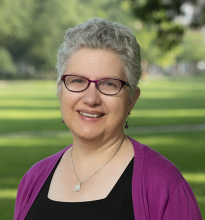
“Though all the principles and commitments of the founding remain, HWW has naturally evolved,” said Antoinette Burton, HWW Principal Investigator and Director of the Humanities Research Institute at the University of Illinois Urbana-Champaign. “We started with themes, like The Global Midwest and The Work of the Humanities in a Changing Climate and turned to the methodologies of reciprocity and redistribution as our focus in the last two rounds of the grant’s cycle, which is fitting given what’s happening in both the academy and the world right now.”
Adapting to meet the needs of the present moment has enabled HWW partners and practitioners to think on a larger scale, including when it comes to career diversity, a core component of HWW. By summer 2023, more than 300 PhD students in the humanities—representing institutions from within and beyond the consortium—attended the annual career diversity workshop. In the spirit of reciprocity and redistribution, the workshop (originally held for several years in Chicago) was hosted on campus at the University of Michigan in 2022 and the University of Minnesota in 2023. Associate Director for Career Diversity, Maggie Nettesheim Hoffman, also developed a Faculty Staff Institute model designed to tailor HWW methods from consortial institutions to local contexts.
“The consortium helped stimulate [our collective] imagination,” said Jennifer Gunn, former director of the Institute for Advanced Study at the University of Minnesota. “It led us to call meetings, to really talk to people about grant possibilities. Our role was helping to make connections and also to give people confidence that this could work.”
Going beyond the walls
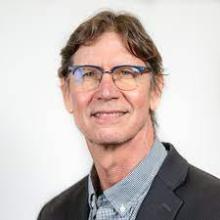
Sometimes, this meant expanding the scope of existing spaces and bringing interdisciplinarity to the fore. John Christman, director of The Pennsylvania State University Humanities Institute, was part of the team involved in the institute’s physical and theoretical reorganization in 2017. Christman and colleagues used this process to break boundaries across Penn State’s traditionally siloed departments and areas of disciplinary expertise, creating pathways for research and fellowship programs that continued the rich humanities work at Penn State while also echoing HWW’s mission.
This kind of boundary-breaking mentality carried over into how humanists at Penn State approached research projects grounded in reciprocity and redistribution. Faculty were encouraged to build collaborative relationships with community partners. One of these public humanities projects included the documentary series HumInFocus, which was produced in partnership with a local television station and nominated for 2021 regional Emmy award by the Mid-Atlantic Regional Emmy awards chapter.
“We had to better attune ourselves to the problems and challenges outside of academia,” Christman said. “We had to think with partners [about] how we train ourselves to help social problems.”
The HWW Grand Research Challenge (GRC) provided an opportunity for faculty members to contemplate these social issues and to rethink their approach to cross-disciplinary collaboration and external academic partnerships. Going beyond the walls of their respective universities proved to be an enticing draw, whether these proposals were awarded grant funding or not.
Gunn reflected on how successful grants in the past often depended on existing collaborations, based on the networks of individual faculty and staff at the University of Minnesota. Whereas, Gunn said, “the GRC calls also provided a focal point for us to bring people together on our own campus. We were able to create relationships where they don’t always exist.”
Engaging collective imagination
Each of the center directors expressed a desire to expand the footprint of HWW work on their campus. They also noted that, to support this expansion, multiple forms of humanistic inquiry and humanistic expression needed to be considered.
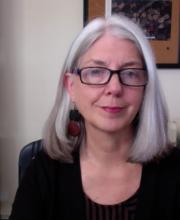
At the Obermann Center for Advanced Studies, several programs found long-term financial support and sustainability elsewhere on campus. Additionally, the Obermann Center (in collaboration with Iowa’s Graduate College and College of Liberal Arts & Sciences) received a Mellon grant to steward Humanities for the Public Good, an “integrative, collaborative, practice-based” graduate Certificate and Master’s degree in development. For Mangum, receiving external funding and internal institutional support were two ways to identify lasting impact for the humanities at the University of Iowa. However, she recognized that further development was needed to increase the effectiveness of humanities programming across all institutions engaged in research and public engagement.
When asked about next steps for those continuing this work, Mangum offered some insight. “Figure out how to convene some discussions. To move what we've done now out into practice, we need to engage the imagination of deans for the humanities and cultures,” she said. “To get administrators engaged in this work would be very impactful.”
This work is already being put into practice by administrators at Michigan State University. Bill Hart-Davidson, Associate Dean of Graduate Education—and a member of the HWW consortium—is not a humanities center director. In fact, the university does not have a dedicated humanities center. Instead, MSU’s College of Arts and Letters functions as a de-facto center. Through his role, Hart-Davidson implemented resources and policies (including changing departmental bylaws) that strengthened the impact of HWW’s initiatives on campus, enabling colleagues at MSU to embrace a broader definition of humanities without walls.
Thinking in multiple directions
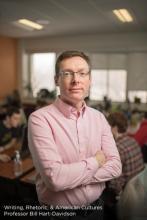
This broader definition was shared by HWW-adjacent projects. Hart-Davidson referenced a Mellon-funded project housed at MSU: Humetrics HSS, which aimed to shift the way folks think about evaluating faculty work in the humanities and social sciences, thereby creating a more inclusive definition of quality work. Equally important, the work conducted by the Humetrics HSS team expanded the realm of possibilities that are practiced by colleagues at MSU to include public facing, engaged humanities work.
Hart-Davidson spoke to the centralized administrative funding of the humanities at MSU as a mechanism for promoting institutional policy that benefits humanists on campus. He acknowledged that HWW’s core research methodologies have enhanced and, indeed, changed the way that current candidates are evaluated for promotion and tenure, aligning with MSU’s pronounced outreach and engagement mission on their campus.
But Hart-Davidson acknowledged that no system is without challenges. “There’s still a lot of pressure [for faculty members] to produce [conventional academic work],” he said. “What HWW allows us to do is show people these alternate paths earlier in their career, with some things to reward that work.”
Gunn agreed, reiterating the importance of guaranteed funding, which allows for dedicated time to conduct interdisciplinary research. Great things can happen, yes, but managing grant-funded research projects from inception to completion requires, according to Gunn, something a little bit extra.
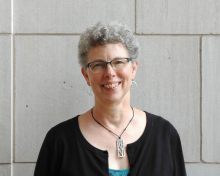
“You have to be tenacious. You can't just imagine the process going smoothly,” Gunn said. “We have to think in multiple directions, to think about the outcomes. We're not trained for the intense amount of fortitude when it comes to actually getting a project over the line, in a bureaucratic sense.”
This type of fortitude pays off in the long run. Minnesota researchers collaborated on the interdisciplinary, HWW-funded Grand Research Challenge project “Indigenous Mississippi: Indigenous Art and Activism of the Mississippi River,” a multi-institutional research project with Northwestern University, the University of Iowa, and the University of Mississippi.
Centering community partnerships
Amid these processes, there is fellowship. Both Gunn and Mangum expressed gratitude for the support provided by the HWW grant. They both were able to build connections across respective institutions, and over time, a shared community of peers amongst the center directors.
“The HWW center and institute directors have been the lifeblood of this project and have helped sustain it in innumerable ways,” Burton said. “Teresa, Bill, John, and Jennifer have been true stalwarts over the years, taking up so many aspects of what we are aiming for in their home institutions and also helping us move the needle in both our research and the career diversity efforts.”
Those who will continue the work started by the HWW grant will have to continually invite, gravitate toward, and center partnerships with community members and academics who may not consciously identify as humanists. But what is a humanist, after all?
When asked for a working definition, Mangum said, “Humanists are people interested in thinking about themselves as cultural beings shaped by their cultures engaging with a range of cultures. People [who] attend to history and see value in thoughtful conversation and reflection, to make meaning in the world.”
Published on September 11, 2023